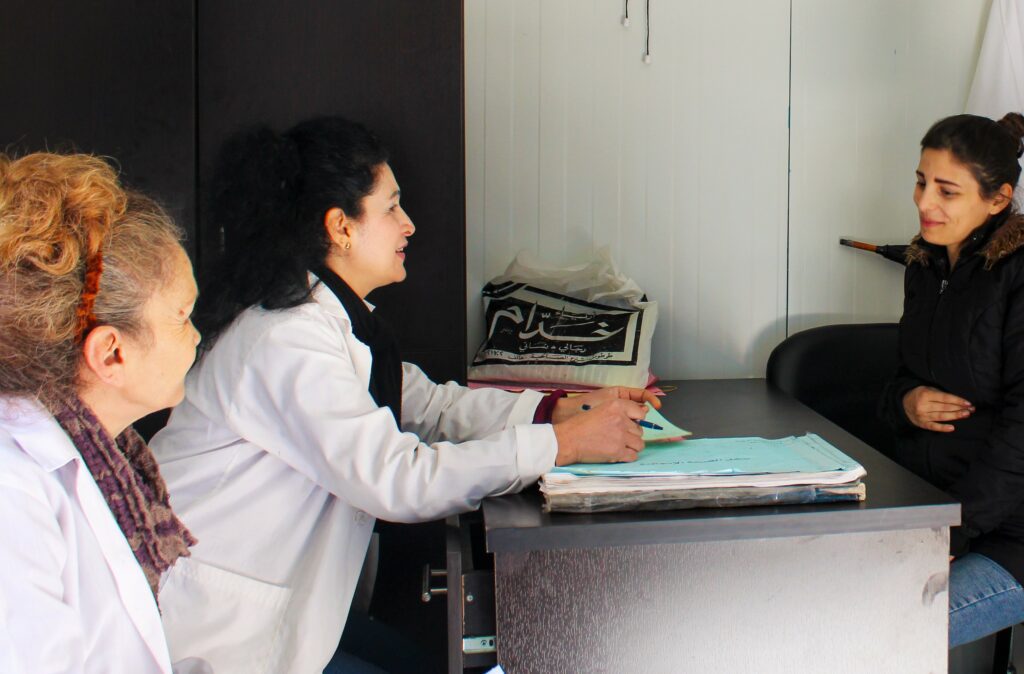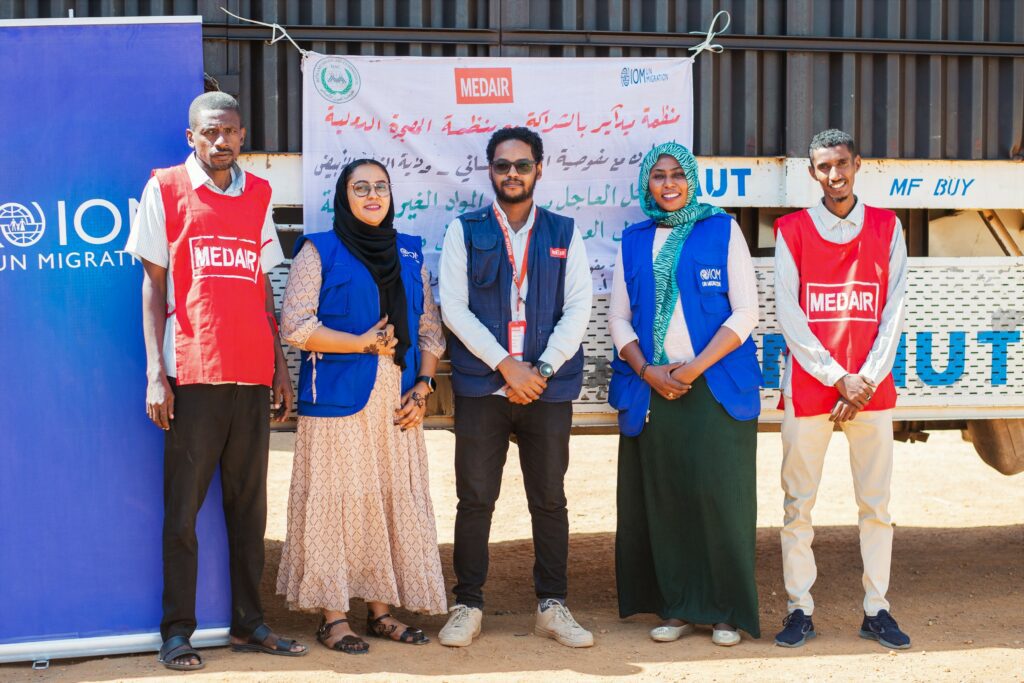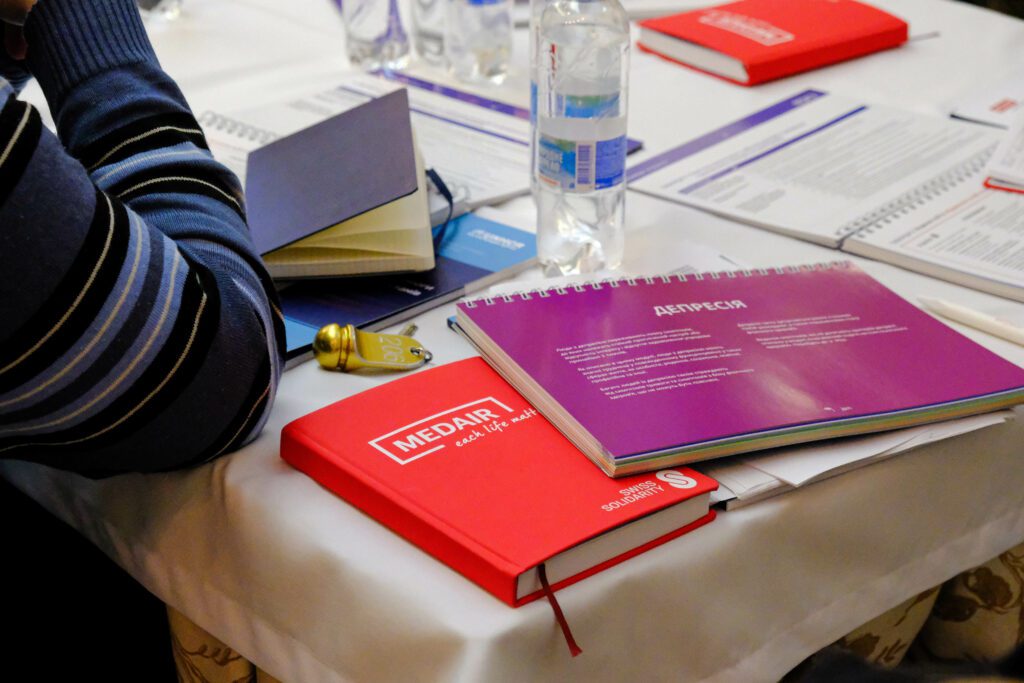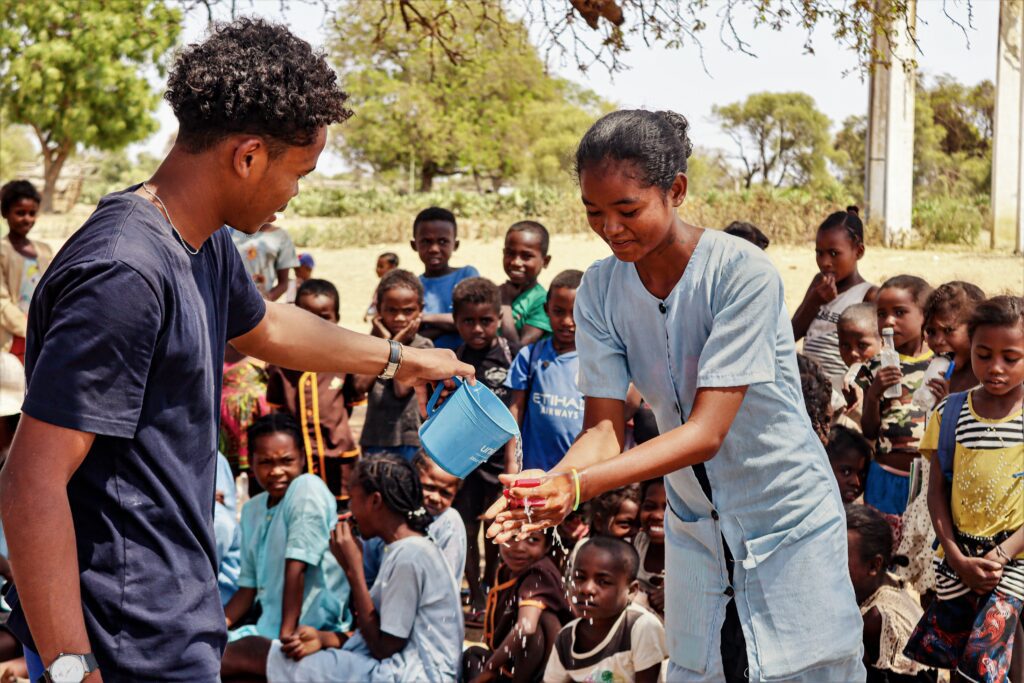It is startling to see how much life has changed here in Cox’s Bazar in just a few short weeks. Streets usually bustling with life are suddenly empty. Few, if any, of the ubiquitous green rickshaws are to be found, and Cox’s Bazar’s sandy beach – a popular destination for tourists – is all but deserted.
As an emergency relief organization, we are faced with the daunting challenge of continuing our life-saving services, anticipating and responding to this new emergency, and preserving the safety of our staff and the people we serve. Our teams working across 12 country programmes are tackling these tough decisions head-on.
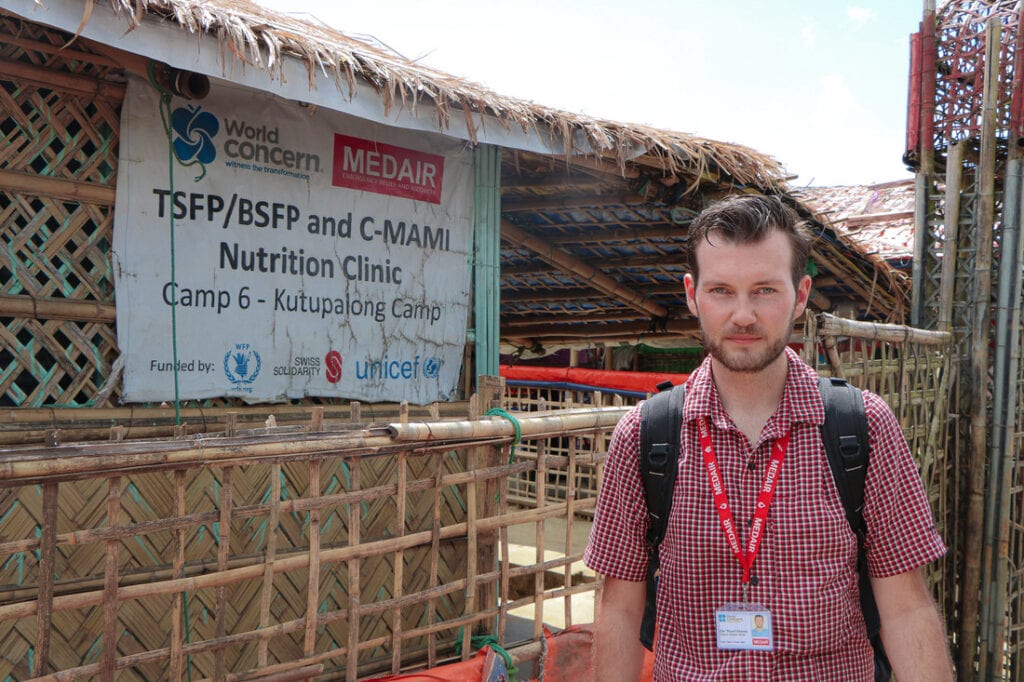
Carl Adams stands in front of a Medair-supported nutrition clinic in Kutupalong Refugee Camp (November 2019).
In Bangladesh, we are limiting non-critical services. These are not easy decisions to make in a context where every service is potentially life-saving. Our shelter kits distributions, for example, which provide important materials to help families reinforce and strengthen their shelter ahead of the monsoon season in June, have had to be postponed.
All of our efforts are currently focused on severely malnourished children and mothers, and of course on our health clinics that are anticipating high numbers of people falling ill with COVID-19. We are getting health messages out into the camp, the same information as elsewhere – handwashing, social distancing, and home isolation if experiencing symptoms.
But consider the stark reality: how would you practice social distancing or home isolation when you live with your family in a single room, or share a toilet or hand pump with your neighbours? The likelihood of the rapid spread of the virus in the camp is unfortunately very high.
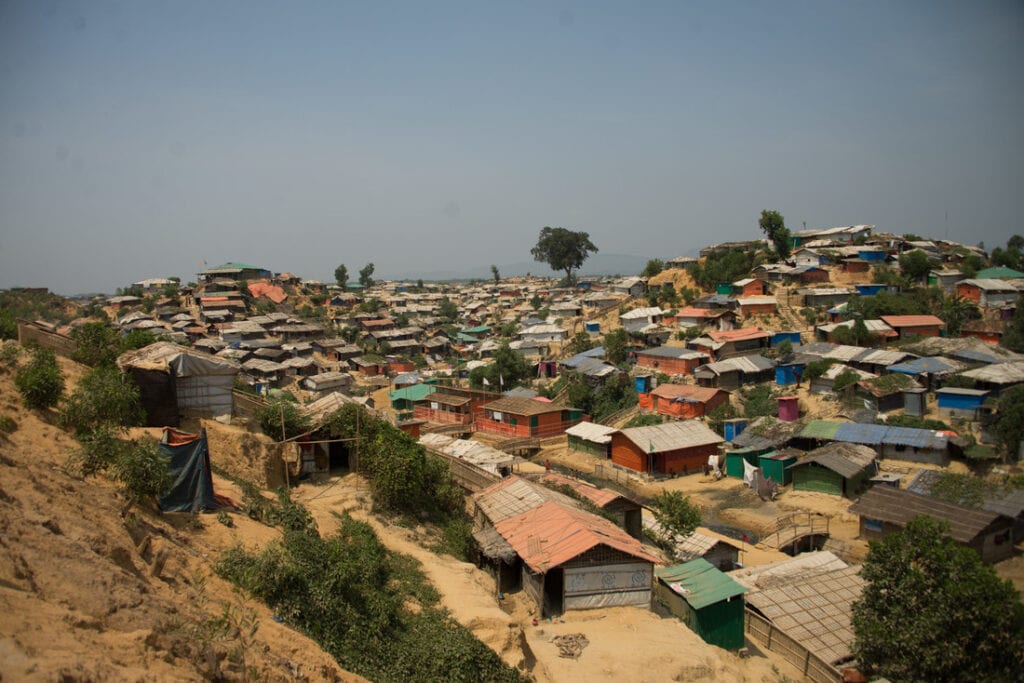
A view of Kutupalong Refugee Camp © Medair/Hailey Sadler
Our staff are wearing protective equipment, we check our temperatures each day, and are travelling to the camp in team buses instead of cars to allow for social distancing while on the road. We have opened our offices and team house for local staff to stay in, if they are concerned about contact with at-risk family members.
We are working closely with other aid organisations to plan how the response will be at different stages, and how we can coordinate to cover the projected needs. Our common focus is on slowing the spread of the virus as much as possible, to give more time for getting isolation facilities up and running in anticipation of patients needing critical treatment.
We can already see that at the peak of the virus, the needs – such as beds, oxygen, ventilator support, medical professionals – will likely outstrip any treatment facilities available, and we are bracing for a difficult few months ahead.
Unlike most of us, the Rohingya were already in the midst of a life-and-death emergency. COVID-19 is now an additional overwhelming crisis they must face. They are a strong people, but they are also incredibly vulnerable, with such congested living conditions and poor sanitation. In many ways, it feels to me like the odds are stacked against them.
What makes the current situation unique is that it’s global – my family, like you and yours, is being directly affected. It’s a common reality that connects the world. My hope is that it brings out the best in us and our communities. I know it can be difficult to think of anything else other than our own personal situation. Have we ever been so unsure of what tomorrow may bring?
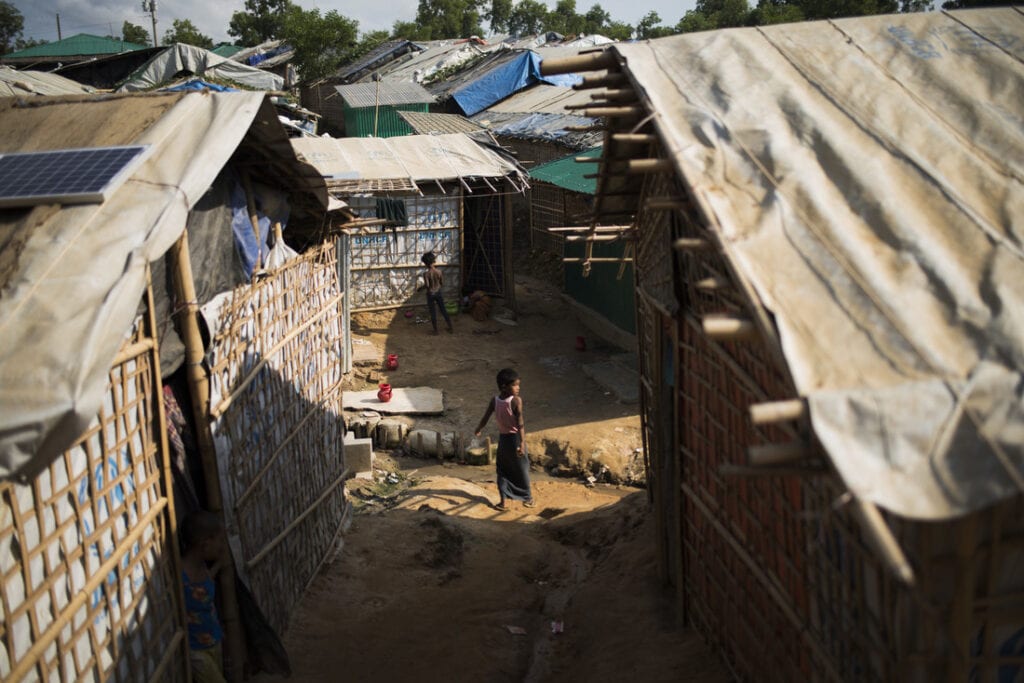
A child walks between bamboo shelters in Kutupalong Refugee Camp. © Medair/Hailey Sadler
I would simply ask that you remember the Rohingya – in your prayers, and if you can, by supporting Medair financially. However cliché it may sound, every little bit really does help. In this time of great uncertainty, we are immensely encouraged and grateful for your support.
Ultimately, I hope and pray you and your families stay well, and that we all come out of this experience stronger, especially the most vulnerable among us.
Medair is an international humanitarian NGO that provides emergency relief and recovery services to families made vulnerable by natural disasters, conflicts, and other crises. Medair is currently active in 12 countries. In Bangladesh, Medair works in partnership with World Concern.
This content was produced with resources gathered by Medair field and Global Support Office staff. The views expressed herein are those solely of Medair and should not be taken, in any way, to reflect the official opinion of any other organisation.


